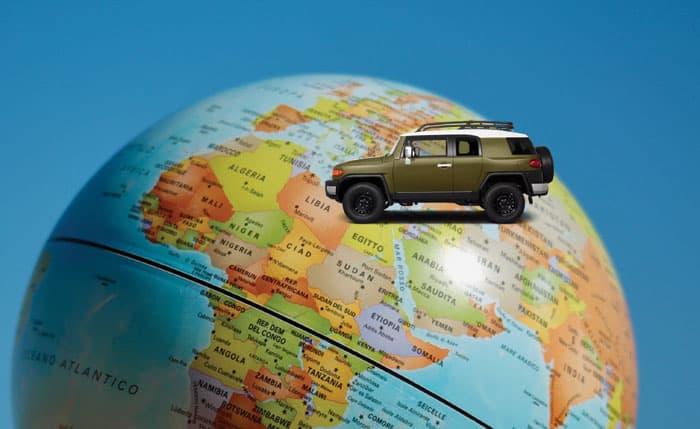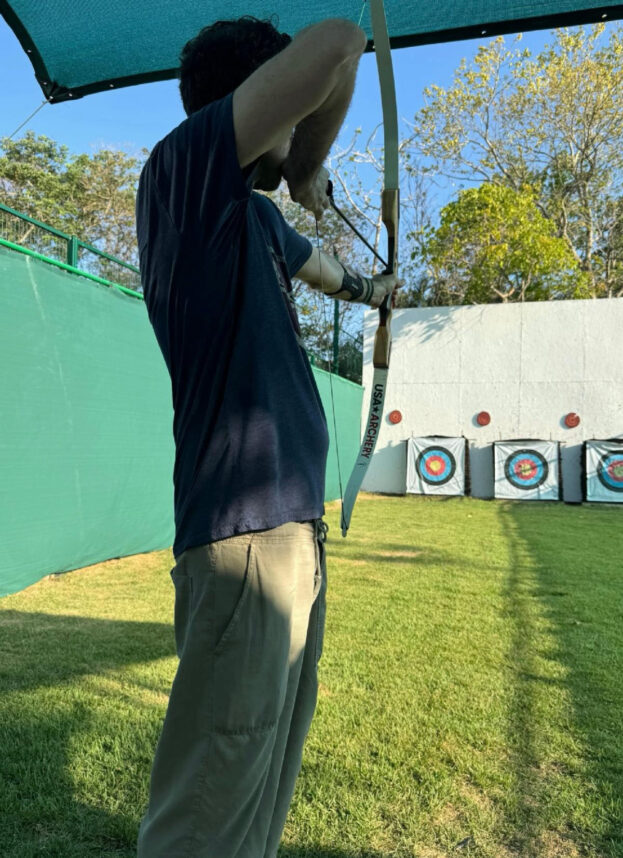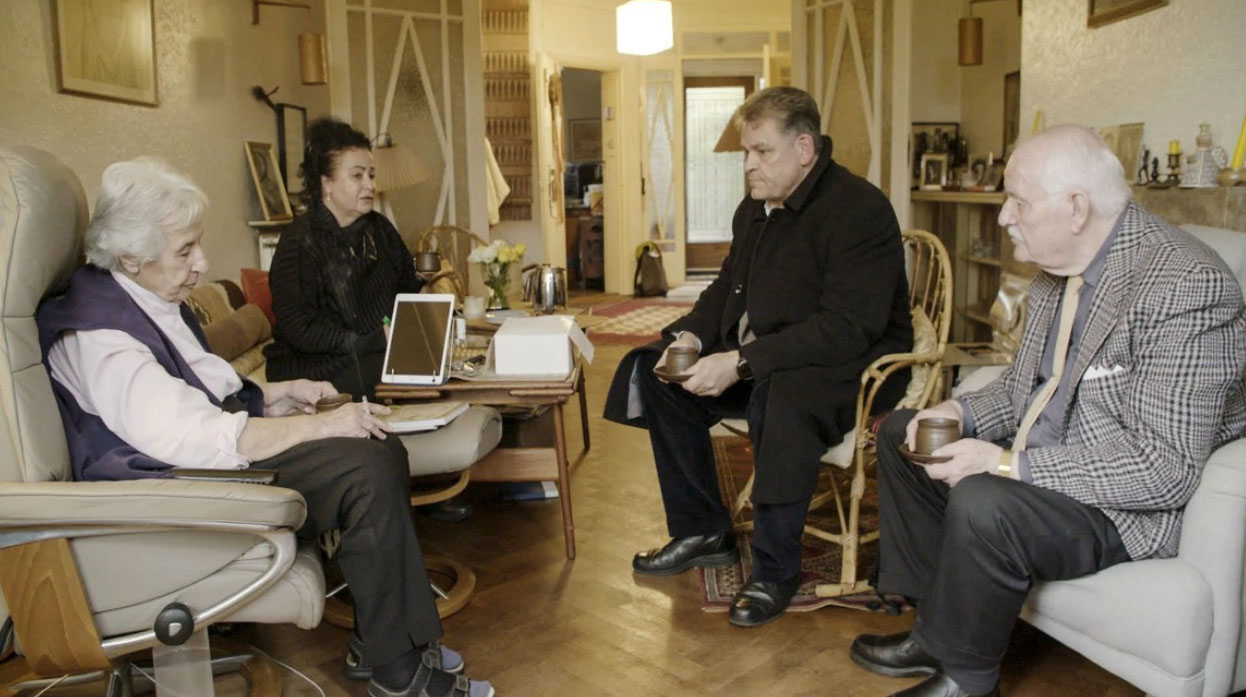
On a Monday morning, a few hours before they were set to leave their house in Sherman Oaks to go to Africa for the next 18 months, Ayala and Eldad (Eddie) Dimand, 57 and 58 respectively, sat down for an interview with the Jewish Journal and reminisced about their long life of travelling.
They had two carry-ons, a couple of duffle bags … and that was it. They are the definition of traveling light. The Israeli couple, who had moved to the US in 1986, are avid travelers and have been traveling the world with their two sets of twins – now ages 26 and 24 – since they were born. Those were shorter trips though: a week here, a month there.
“I arranged four car seats in the back of the car and we went everywhere with them,” said Eldad. “We also used to have a motor home which we crisscrossed the states with. We did it every single weekend.”
But the couple was eager to set out on a real trip, like the one they did after their discharge from the IDF, where they had met while serving. After traveling in their early 20s all over the U.S. and South America, they returned to Israel to get married and raise a family there. But they just couldn’t do it.
“We took all the money we got as wedding gifts and traveled back to South America, visited Brazil and Venezuela and then decided to settle in Los Angeles,” said Eldad.
Once their four children moved out of the house, the couple knew exactly what they wanted to do. The plan was to drive all the way to Argentina and then ship the car back home. They took their Toyota FJ Cruiser and transformed it into a hotel on wheels. On the roof, they set up a folded tent which opens up easily. In the back, they arranged for a cooler, a cooking stand, a water tank for showers and all the essentials needed for a long trip.
“We love off-roading, [and] we prefer it to driving on the main road,” said Eldad. “This way we get to see places that tourists don’t usually see while traveling, and we meet people who live in small villages and get to really know them and their lives.”
Their unusual looking car drew attention wherever they went and gained them new friends, even in places considered dangerous by many travelers.
“When we got to El Salvador, we were pretty scared because they have the biggest murder rate in all of South America,” said Eldad. “As soon as we crossed the border and were on the main road, we noticed another Toyota driver who looked at us suspiciously. He drove in front of us, switched to the back, then next to us and signaled me to stop.”
Needless to say, the Dimands were not too eager to oblige, but the other driver was persistent. Reluctantly, they parked on the side of the road and hoped for the best.
“We rolled down the windows just a bit at first, but the guy seemed harmless,” Eldad said.” He was very excited about our car and told us he is representing the off-road community in El Salvador. He wanted to invite us to an event they were holding in Honduras where other members of the community from all over South America were going to attend. We gladly accepted and arranged to get there.”
However, before they managed to get to the off-road event, they landed another surprising invitation. “We stopped one day to fix something in the car, and this guy comes up to us and introduces himself as an off-road, 4×4 lover. [He] invited us to his hotel that sits on a lake in Honduras.”
At the first event they were invited to, they met with Ibrahim, a Palestinian immigrant. “He was the owner of the restaurant where the meeting of the club was held,” said Eldad. “We met his brothers and children and they were so nice and welcoming.”
Isn’t it difficult to travel with your spouse for months on end and share a small space 24/7?
“My husband is a very easy-going kind of guy,” said Ayala. “I think it’s important to understand each other’s role in the trip, like who is driving, navigating, et cetera and then everything works out.”
To plan the trip, the couple marked on Google Maps all the places they would like to visit. They used an app for off-roaders and mainly drive on dirt roads so they could see nature.
With limited Spanish – which improved throughout their trip – they managed to communicate with people, many of them poor or with limited resources, who opened up their homes and hearts to them.
“It was pretty incredible to see how generous people were. When we got to Guatemala, we needed to change [our] oil, [and] it was a Sunday and everything was closed,” said Ayala. “We saw a guy who had a ramp in his garage. We stopped and asked if we can use it to lift up the car. Not only did he agree, he insisted to help Eddie to change the oil. When we wanted to pay him, he refused and said he was happy to help. It repeated itself everywhere we went. People were willing to help and didn’t ask anything in return.”
Their next trip, set to start soon, will begin in Spain. Afterwards, they will cross through Gibraltar to Morocco, continuing all the way down to South Africa.
Their next trip, set to start soon, will begin in Spain. Afterwards, they will cross through Gibraltar to Morocco, continuing all the way down to South Africa. Then they will head back home, where they will stay for a short while until the set out for their next adventure with their home on wheels.






















 More news and opinions than at a Shabbat dinner, right in your inbox.
More news and opinions than at a Shabbat dinner, right in your inbox.